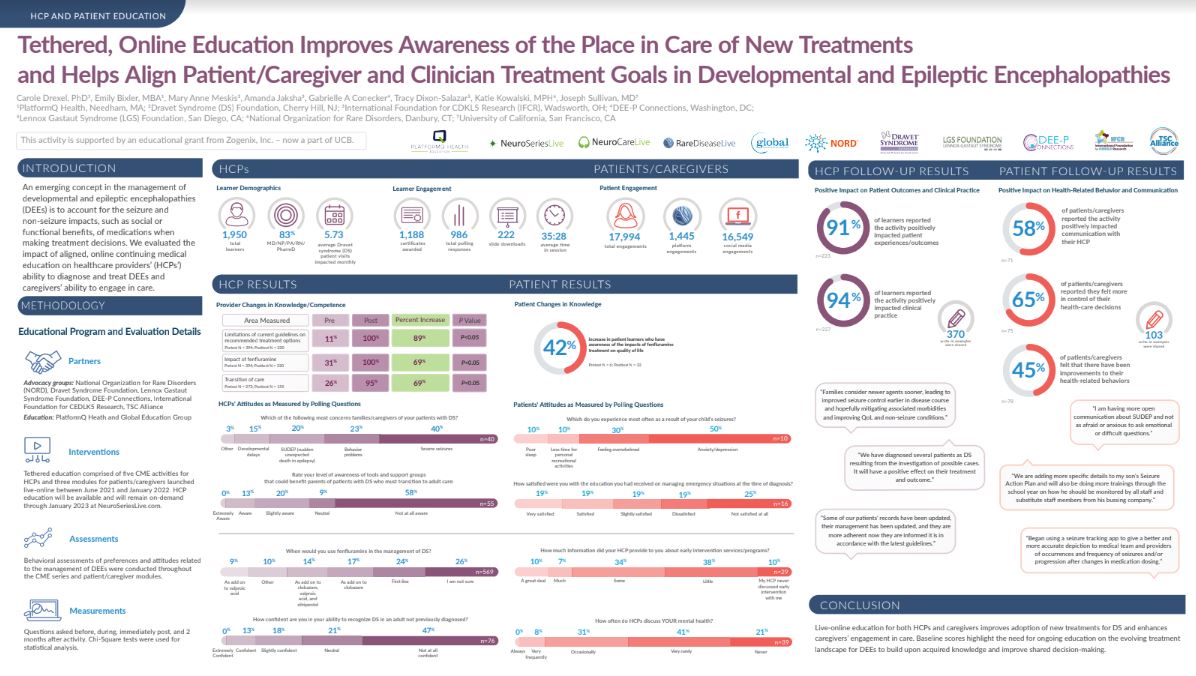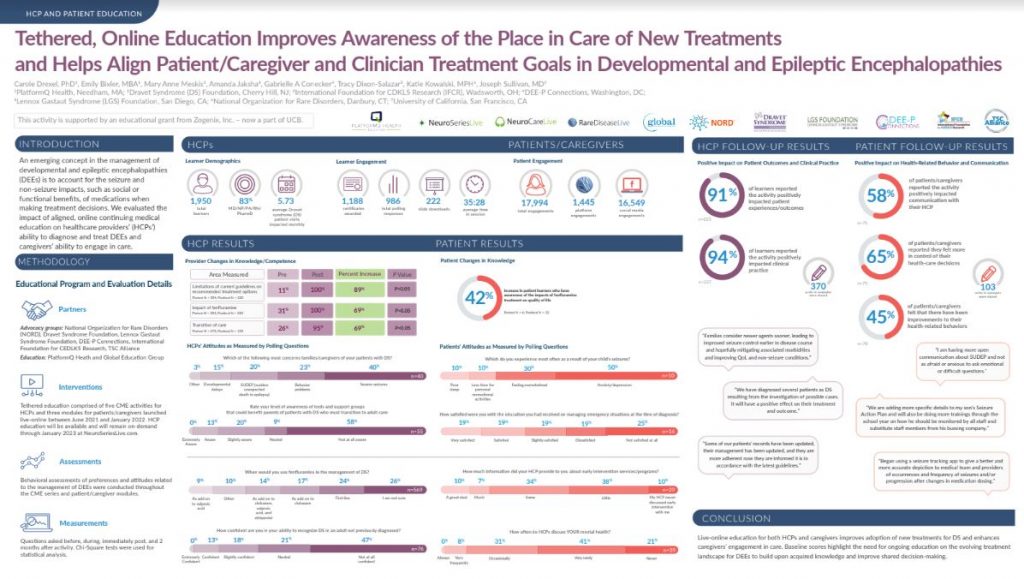The management of developmental and epileptic encephalopathies (DEEs) has shifted in recent years, necessitating changes in treatment decisions. In the wake of these changes, PlatformQ Health, the National Organization for Rare Disorders, the Lennox Gastaut Syndrome Foundation, and the University of California, San Francisco came together to produce aligned, online continuing education to support healthcare providers in their ability to diagnose and treat DEEs and help caregivers to engage in care.
Funded through an educational grant from Zogenix, Inc., the sessions were designed to improve awareness of the place of new treatments in care and to align patient and provider treatment goals. The tethered education sessions comprised of five CME activities and three modules for patients and caregivers. These were launched online live and remained available on demand through learning channels such as NeuroSeriesLive.com.
Behavioral assessments of preferences related to DEE management were conducted throughout the patient and provider sessions. Measurements were gathered through pre- and post-survey questions as well as Chi-Square tests for statistical analysis. Using this data, the partners presented a poster at the 2022 CNS annual meeting demonstrating the session outcomes.

Click here to download the poster.
1,950 learners participated in the programs, including 83% of whom were MDs, NPs, PA, RNs, or PharmaD professionals, with an average time in session of more than 35 minutes. Provider changes in knowledge/competence was significant, with learners reporting an 89% increase in understanding the limitations of current guidelines for treatment options, 69% reporting an increase in understanding the impact of fenfluramine, and 69% reporting an increase in understanding transition of care. Patient knowledge was also improved, with a 42% increase in patient learners who became aware of the impacts of fenfluramine treatment on their quality of life.
91% of providers reported the activity positively impacted patient experiences and outcomes, and 94% reported the activity positively impacted clinical practice. Likewise, 65% of patients/caregivers reported they felt more in control of their healthcare decisions after participating in the sessions.
Patient and caregiver answers to polling questions also proved insightful, revealing a need for support during emergency situations at the time of diagnosis, when their child has a seizure, and during early interventions.
The outcomes demonstrate that online education has the potential to improve adoption of new treatments. Scores also highlighted the need for ongoing treatment in the ever-evolving DEE field to enhance both provider competencies and shared decision making among patients and providers.

